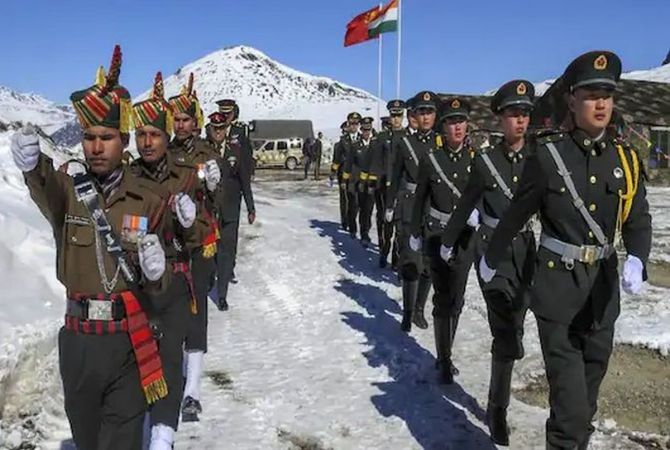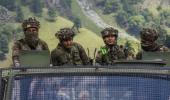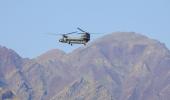The ties between India and China have come under 'severe stress' and the agreements inked by both sides over the last few years must be respected 'scrupulously' in their 'entirety' to restore normalcy in relations, External Affairs Minister S Jaishankar said on Saturday in the midst of the eastern Ladakh border row.

The external affairs minister, delivering the Sardar Patel Memorial lecture, also made it clear that any attempt to unilaterally change the status quo of the Line of Actual Control (LAC) is 'unacceptable' to India.
During the lecture aired on All India Radio, Jaishankar also referred to cross-border terrorism and said India has to be uncompromising in combating it.
"As far as China is concerned, ties were stable for three decades as the two nations addressed inherited challenges and new circumstances
"Peace and tranquillity in the border areas provided the basis for expanded cooperation in other domains.
"But as the pandemic unfolded, the relationship has come under severe stress," the minister said.
"To restore normalcy, agreements between the two countries must be respected scrupulously in their entirety.
"Where the Line of Actual Control is concerned, any attempt to unilaterally change the status quo is unacceptable," he added.
"The relationship cannot be immune to changes in the assumptions that underpinned it," he said.
India has been maintaining that the agreements inked between the two countries since 1993 for management of the frontier must be respected and effectively implemented, saying peace and tranquility along the LAC is the basis for the overall development of the ties.
"Large civilisational states re-emerging in close proximity will not have naturally easy ties.
"Their interests are best served by a sustained engagement based on mutual respect and mutual sensitivity," he said.
India and China are locked in an over five-month-long bitter border standoff in eastern Ladakh that has significantly strained their ties.
Both sides held a series of diplomatic and military talks to resolve the row.
However, no breakthrough has been achieved to end the standoff.
Talking about the strategy on national security, Jaishankar said advocating sweeping solutions without laying the groundwork may be dramatic politics, and mentioned about creation of border infrastructure along the northern border.
Breaking down silos and ensuring a more integrated governance process is just as important to performance.
It has been a major priority in the last six years, especially in national security, he said.
The minister said India will continue to give utmost attention to its immediate neighbourhood while engaging the different poles of emerging global order.
"As an outlook, the Neighbourhood First policy remains generous and non-reciprocal in creating the basis for shared activities in different domains.
"In recent times, India has also become more conscious of the extended neighbourhood, that is so much a part of its history and heritage," he said.
About India's ties with the US, Jaishankar said successive governments on both sides have steadily pursued what has become a non-partisan endeavour.
"A strong economic and technological complementarities, also reflected in their work culture, has laid a strong foundation.
"And the diaspora has been a very effective bridge. But it is in the face of emerging multi-polarity that both nations have developed a serious interest in more intensive engagement," he added.
Talking about Russia, he said India's relations with it have been 'remarkably steady', noting that the strategic logic that has sustained the ties since its early days still remains largely relevant.
"As a region full of capabilities, resources and best practices, Europe is a natural partner for a more ambitious India.
"There is an equally strong case for accelerating the partnership with Japan.
"Responsible for catalysing many aspects of India's modernisation, its true potential is still far from realised," he said.
Outlining a glimpse of the post-Covid-19 approach to India's foreign relations, Jaishankar said, "India will approach the world in a more proactive way in the aftermath of the pandemic.
"Some of that will be driven by a global vision of its interests that it has steadily developed over the years."
In a post-COVID-19 world, Jaishankar said Indian diplomacy will be more integrated with its defence and security needs, and more supportive of the country's economic and commercial interests.
"The pressures of the pandemic will naturally impart a different urgency to such engagements. Where we can make a difference to the recovery and revival of others, we will do so unhesitatingly," he said.
"In terms of harnessing global capabilities, diplomacy abroad will match the boldness of reforms at home. And we will take a much more holistic approach to policy challenges and their delivery prospects," he added.
As India rose steadily in a changing world, Jaishankar said, a key element of that journey was its expanding ties with major power centres.
"In virtually every case, the content of its ties grew substantially, whether weighed in terms of politics, security, economy, technology or community. Some nations were more openly supportive of India's rise; others took nuanced positions," he said.











 © 2025
© 2025